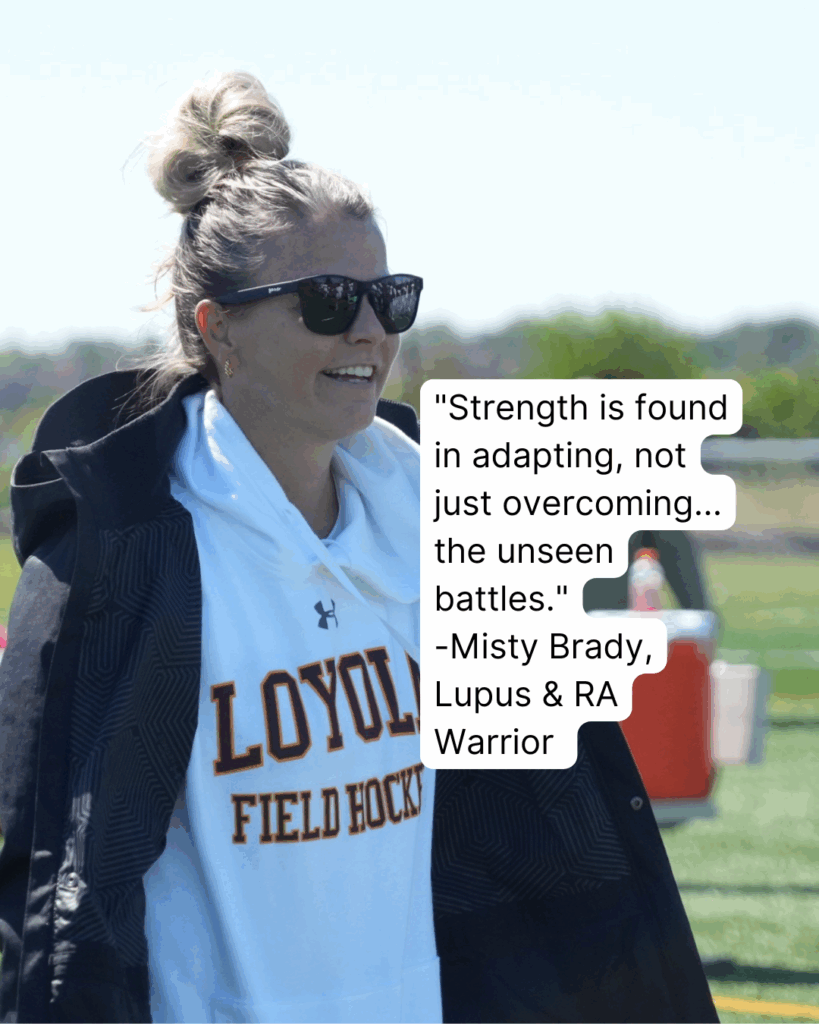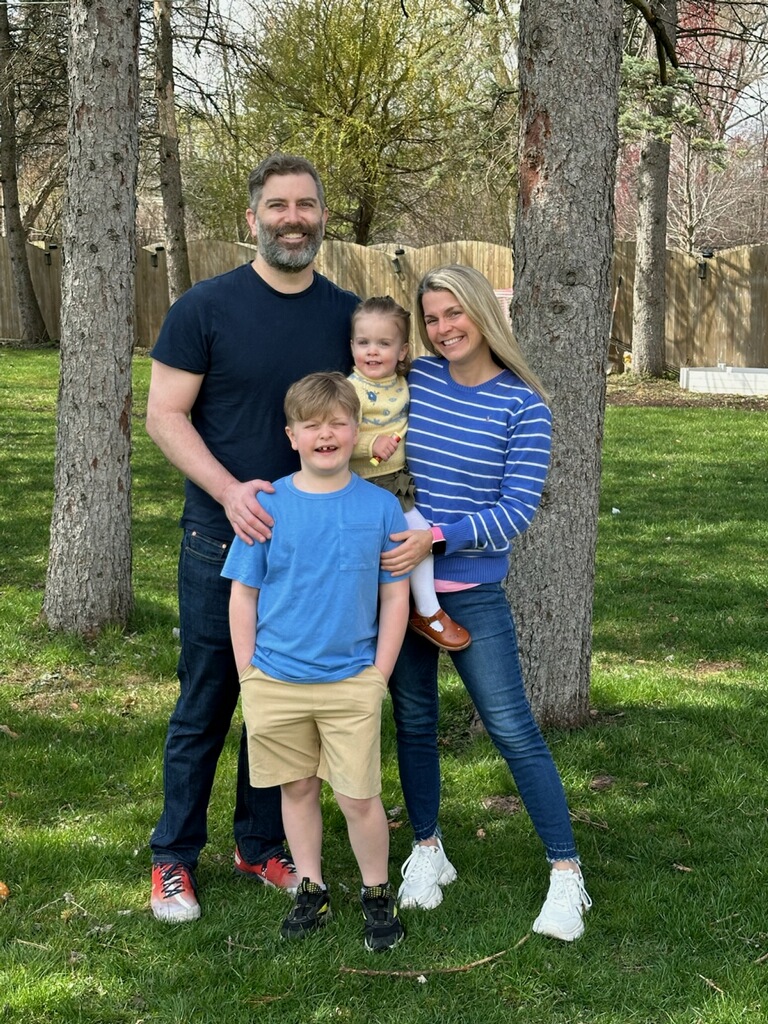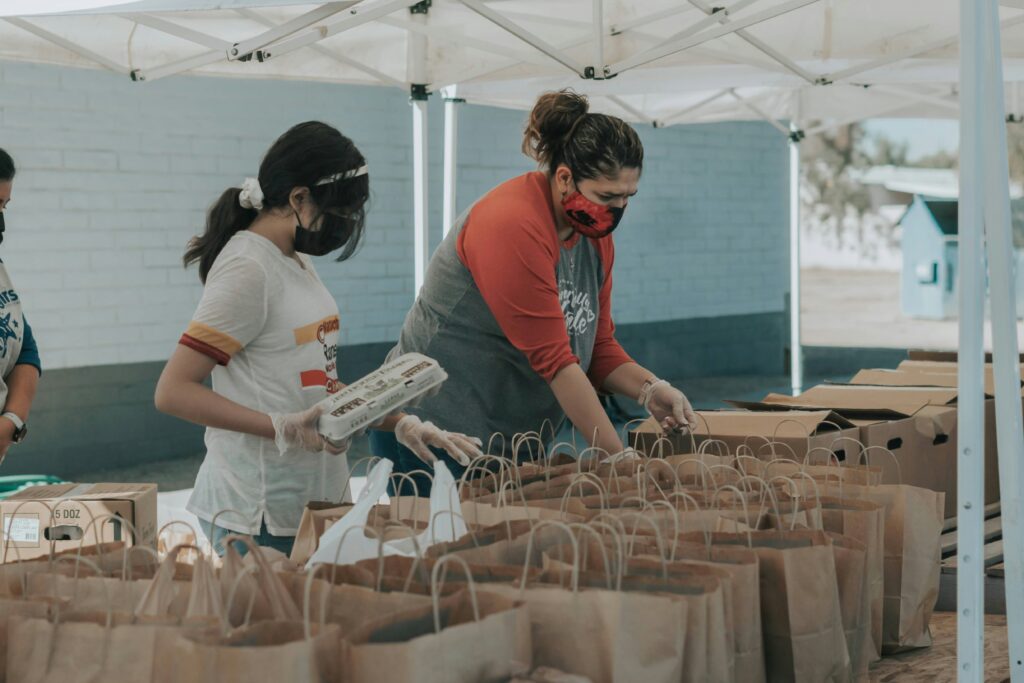When you’ve trained your whole life to push your body to the limit, listening when it says “stop” doesn’t come naturally.
For Misty, a former Division 1 field hockey player turned elite coach, the journey from peak performance to living with lupus and rheumatoid arthritis has been one of resilience, self-discovery, and redefining what strength really means.
Ignoring the Red Flags
Looking back, Misty admits her body was signaling trouble long before her diagnosis.
Hair loss at 20, unexplained fatigue, and repeated “mono” misdiagnoses were dismissed as normal stressors of college athletics and academics.
Like many athletes, she rationalized every symptom—until her body forced her to stop.
“I was training for a marathon when everything went sideways. My body just quit,” she recalls. “I thought I was having an allergic reaction. My throat closed, my legs gave out. It was terrifying.”
Takeaways:
- Don’t dismiss unusual symptoms as “just stress.”
- Track patterns—energy dips, flares, recurring illnesses.
- Advocate for yourself in medical appointments. If you don’t feel heard, push back or seek another doctor.

The Betrayal of the Body
For an athlete whose identity was built on physical ability, losing control of her legs was devastating.
“Field hockey was my craft. To suddenly not be able to demonstrate skills for my players—it felt like my body betrayed me.”
And yet, that sense of betrayal eventually transformed into gratitude.
Misty vividly remembers sobbing on the side of the road one Halloween, convinced she’d never walk through a pumpkin patch with her son.
Today, even on difficult days, she grounds herself in gratitude: “If I can laugh with my kids at night, that’s a successful day.”

Redefining Success
For Misty, success used to mean winning, medals, and relentless drive. Now, it means balance, boundaries, and perspective.
“I sprint, then I rest. I force breaks into my day. I’d rather have giggles with my kids than a clean house or a perfect dinner.”
She applies the same philosophy in her coaching.
While she still pushes her athletes to sharpen their skills, she also emphasizes mental health and perspective:
“I wish someone had told me it was okay to just take up space without the medals and the crowns. That’s the message I want to give my players: your worth isn’t tied to performance.”
Takeaways:
- Create flexible definitions of success (e.g., finishing a light workout, enjoying practice, being present with loved ones).
- Recognize that rest is a form of training.
- Celebrate consistency, not just peak performance.

Breaking the Myths of Autoimmune Disease
One of the biggest lessons Misty wants other athletes to know is that appearance doesn’t equal health.
At her sickest, weighing just 102 pounds, people told her she looked “great.” In reality, her body was eating itself.
“Weight has nothing to do with performance. Your body is a gift, no matter what it looks like. What matters is how you manage your energy—your spoons—and whether your goals are worth the risk.”
Takeaways:
- Health is not defined by weight or appearance.
- Focus on function: energy levels, recovery, and performance—not aesthetics.
- Strength is about resilience, not body type.
👉 “Your body is a gift. It doesn’t need to look a certain way to perform.”

Finding Invisible Strength
Through setbacks, diagnoses, and loss, Misty has found strength not in powering through but in adapting, slowing down, and embracing gratitude.
“My oldest sister passed away. My younger sister is battling cancer. I live with lupus and RA. But I wake up knowing how lucky I am. I’ve been through hell and I’m still here—and that perspective changes everything.”
Her story is a powerful reminder that invisible strength isn’t about doing it all—it’s about knowing when to rest, when to fight, and how to find joy in the small moments.
Dance on, friends,
Karin
P.S. If you live with an autoimmune condition or love someone who does, know this: You’re not alone.
P.S.S. Subscribe to our blog and podcast for more inspiring stories and practical strategies from real warriors like Misty.
Disclaimer: These tools do not replace the advice of a health care professional; if you have concerns about your health, please consult a health care professional.
This page may contain affiliate links that won’t change your price but will share some commission. As an Amazon Associate, we earn from qualifying purchases.

 Karin W
Karin W 




























